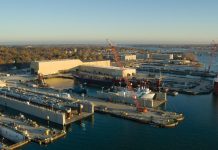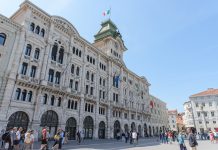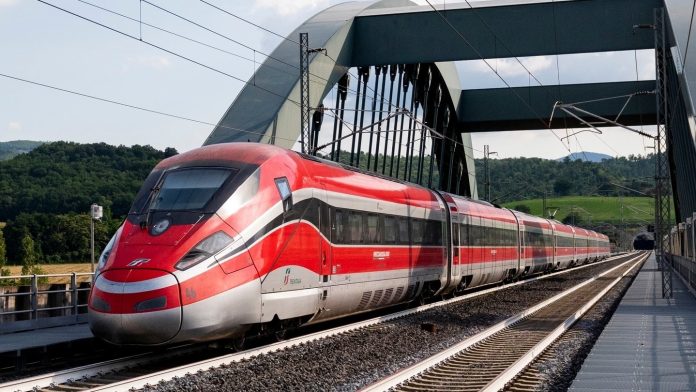by InTrieste
Over the past six months, train travel in Friuli Venezia Giulia has seen steady growth, reflecting the region’s ongoing efforts to promote rail as a viable and sustainable alternative to private transport.
“The results of the last six months once again confirm the effectiveness of regional policies designed to make the train a true alternative to private vehicles—sustainable, convenient, and increasingly responsive to the needs of both residents and visitors,” said Cristina Amirante, Regional Councillor for Infrastructure and Territory. “Rail transport is a cornerstone of our vision for a connected, green, and competitive region—one that enhances events, communities, and landscapes through modern and responsible mobility.”
Between April and October 2025, more than 115,000 passengers traveled by train to three of the region’s major late-summer events: Friuli Doc in Udine (15,700 passengers), Gusti di Frontiera in Gorizia (34,600), and Trieste’s Barcolana regatta (64,000). The total represents increases of up to 64 percent compared with 2024.
Rail services dedicated to cycling tourism—such as the AlpeAdria Line, the Collio Line, and the TrenoBici delle Lagune—were also on the rise. More than 63,000 passengers traveled with their bicycles, marking a 13 percent increase over the previous year. “This demonstrates how the Region’s continued commitment to sustainable and integrated mobility is being reflected in the success of tourism by rail,” Amirante noted.
Special attention has also been given to passenger flows linked to cruise departures from Trieste. Dedicated train connections between Trieste and Venice have already transported more than 70,000 travelers between April and October, with that figure expected to reach 80,000 by the end of the year.
Friuli Venezia Giulia, Amirante said, continues to position itself as a national leader in public and tourist transport. “The collaboration between institutions and industry operators is producing tangible benefits in terms of sustainability, quality of life, and the overall attractiveness of the region,” she concluded.






























